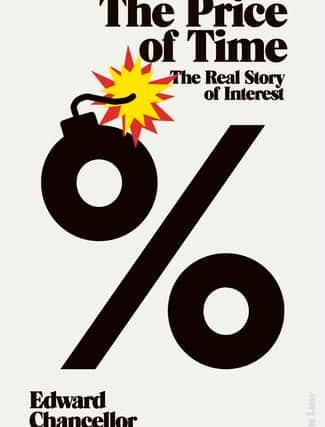Book review: The Price of Time, by Edward Chancellor


Billed as “a history of interest rates and their many unexpected ramifications”, this is the latest tome from award-winning financial writer Edward Chancellor, and undoubtedly a topical one amid global and individual consumer economic turbulence.
A former financier, whose roles in the industry include until 2014 serving as a senior member of the asset allocation team at Boston investment firm GMO, Chancellor shines a spotlight on a topic that is an inevitable consequence of societies’ needs, since the dawn of civilization, to trade and barter.
Advertisement
Hide AdThe title comes from the belief that interest is the price placed on the use of time, and the author stresses that capitalism cannot function in its absence, arguing it is needed to direct the allocation of capital and value investments.


He goes on to plot in forensic detail the history of interest, peppered with several compelling facts and anecdotes; one that I found particularly intriguing was how the Hebrew word for interest derives etymologically from the bite of a serpent.
A Scot has a key part to play in this story: economist John Law, whose biography overspills with so much drama that he must surely one day be the subject of a biopic. Events in the life of this son of an Edinburgh goldsmith-banker include killing his opponent in a duel before having a starring role in French economic policy, coming unstuck with the ill-fated Mississippi scheme, and now credited as having defined modern central banking.
Chancellor also examines the impact of central banks’ policy of zero/negative interest rates since 2008, and he doesn’t pull any punches in laying out his opinion that ultra-low rates have had catastrophic, long-lasting consequences.
The book, which sometimes veers into textbook territory, left me far better informed about monetary policy’s key role in the 2008 financial crisis and its aftermath, including European turmoil and the headline-grabbing freefall of Iceland’s financial system. The book has also made me think on a personal level about interest, specifically compound interest, and how it can either make your financial situation fly or flounder.
There are varying views on whether or not interest is a force for good, but it is Chancellor’s belief that the global financial system is once again teetering on the brink – and that is something in which we should all take a close and different kind of interest.
The Price of Time: The Real Story of Interest, by Edward Chancellor, Allen Lane, £25